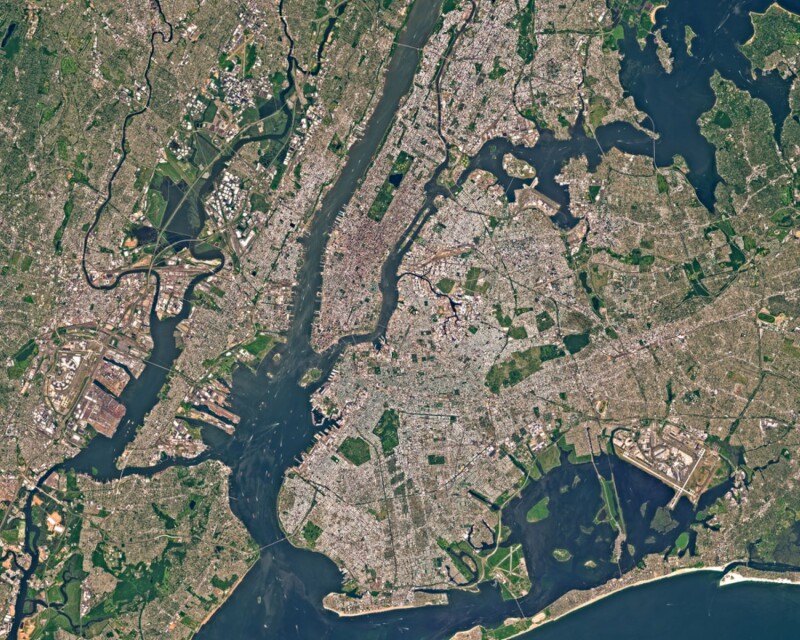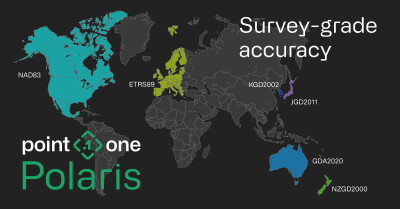Last week, Planet Labs announced the release of their new Planet Insights Platform, which they describe as the “all-in-one place for creating Earth insights.” The platform combines capabilities between the company’s various offerings as well as those of Planet’s recent acquisition, Sentinel Hub.
High-quality data coming from satellites in space is more readily available than ever before, in no small part because of Planet’s work in the space, and with that growing availability has come growth in usage. Of course, accessing the data is only half the battle, and this platform allows both access to the data and analytical tools to gain the most insights possible. Now, users have a unified space to utilize the following offerings from Planet:
Planet Monitoring, which provides Earth Observation data of the entire landmass of Earth on a daily basis, allowing users to make decisions based on up-to-date information.
Planet Tasking, which allows users to hone in on specific areas seen in other data and task Planet’s SkySat, which can provide extremely high-resolution imagery of a specific area, allowing you to “proactively identify blind spots, anticipate events, and have confidence in your next mission-critical decision.”
Analytic Feeds, which leverages machine learning algorithms to automatically identify objects and features of interest.
Planetary Variables, which takes observations from Planet’s satellites as well as others in the broader Earth Observation ecosystem and measures changing conditions to Earth’s surface.
Planet Basemaps, which combines Planet’s software with daily satellite imagery to create “visually consistent and scientifically accurate mosaics.”
Furthermore, in their announcement of the platform’s release, Planet pointed to the following updates that are coming alongside this release:
A unified account experience across Planet & Sentinel Hub: By linking the two platforms, users will now be able to access cloud hosting and imagery analysis tools from Sentinel Hub through a single login.
Enhanced Analysis-Ready PlanetScope data: Analysis-Ready PlanetScope uses proprietary AI to create harmonized, cloud-masked, and spatially consistent daily stacks of images, which enable time-series analysis and machine learning applications.
Updated global Road & Building Change Detection: Planet’s Road & Building Change Detection AI-based models point to where development is taking place across country-wide areas, on a weekly basis. This can help users clearly understand how and where the places they care most about are evolving.
New and improved Planetary Variables: Field Boundaries trace the boundaries of agricultural parcels, giving insights into different crop types and growth throughout the season. Additionally, Crop Biomass Planetary Variable now integrates Planet’s daily, global PlanetScope data, offering a cloud-free, analysis-ready data product for monitoring agricultural fields.
Time series and statistical analysis: Within the Planet Insights Platform, users can efficiently translate imagery into formats best suited for advanced data science and AI / ML models.
Last week, Planet also hosted a webinar event to further discuss the release of the new Planet Insights Platform, with a number of executives and team members talking through different pieces of the release. Towards the start, Co-Founder and CEO Will Marshall noted that, in his view, we’ve only “truly harnessed one percent of the value” of Earth Observation data sets. He continued, “There’s a vast array of use cases, and the Planet Insights Platform is our path to enabling an ecosystem of partners to unlock them.”
Later in the webinar, Troy Toman, a Senior Vice President of Product and Software Engineering, talked about the different users who will benefit from having this platform available. Those users generally fall into three buckets, with developers who can create applications more quickly and cost-efficiently, data scientists who can create more accurate models which scan globally and over long timespans, and analysts who will have access to more robust data with change detection and alerting tools.
Finally, three directors of product – Caroline Biermann, Nasim Farsinia, and Justin Davis – detailed some examples of how different sectors and professionals can take advantage of the data and analytic capabilities. Farsinia outlined how ministries of agriculture can use the platform for monitoring vegetation greenness over time, while Biermann discussed how users can switch between different data sources to track things like forest cover and soil water content. Davis, meanwhile, focused on some of the AI/ML capabilities around change detection over time, looking at things like new buildings and/or roads being detected by Planet’s AI.
“Making sense and taking action in the face of the global challenges that governments and businesses are facing today requires looking broader, closer, deeper, forward and backward in time,” Marshall said in a statement. “And further, solving such challenges requires not just data, but solutions. I’m so excited for this strategic launch because it creates a central place to access the best of Planet data, analytics, and unique tools that will enable an ecosystem of customers and partners to build innovative solutions in this time of rapid global change.”






